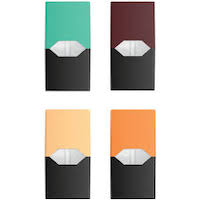
The availability of flavors like mango, mint, and cucumber has been seen by many as a primary cause for a significant uptick in youth vaping over the years. While the company’s marketing strategies, including a significant social media presence, have captured much of the public’s ire, the availability of appealing flavors has also been taken as evidence of Juul’s intentional targeting of kids.
Juul Labs acknowledged its public relations issues. The company’s new CEO said that the voluntary move to discontinue flavored vape sales was made as a move toward “earning the trust of society” and is part of a larger strategy to “combat underage use while providing an alternative to adult smokers.”
The day of the announcement also came with news of a legally binding agreement between Juul and a small non-profit known as the Center for Environmental Health. Enforceable only in the state of California and for a finite period of time, the agreement prohibits Juul from advertising at events that allow people to attend that are under the age of 21. In addition, Juul is prohibited from allowing its employees to appear at California schools and cannot use models in its advertising to be seen in California that are under 28 years old.
As the vaping industry braces for increased scrutiny, potential bans, and thousands of lost jobs, news broke earlier this month of a “breakthrough” discovery by the CDC in the mysterious vaping-related illness that has killed almost 40 people and sickened over 2,000.
Vitamin E acetate had been named as a possible culprit in the illness months ago before government agencies seemed to back off the assertion. Used mostly as a cutting agent in illicit, black market THC vape cartridges, the oil is akin to grease and is not expelled from the lungs like legitimate materials used in vaping.
Principal deputy director Anne Schuchat formally named the compound during an announcement issued by the agency. Having tested lung tissues of illness victims for a wide range of substances, the only toxin found throughout all samples of those tissues was vitamin E acetate. “No other potential toxins were detected,” according to Schuchat.
29 samples of lung fluid were tested in the CDC study and all samples were found to contain vitamin E acetate. In addition, THC was found in 23 of the samples, including three samples from people who said they had only vaped nicotine products before falling ill. Vitamin E acetate has become a popular ingredient in illicit vape cartridges due to its cheap price and visual similarity to actual THC oil.
